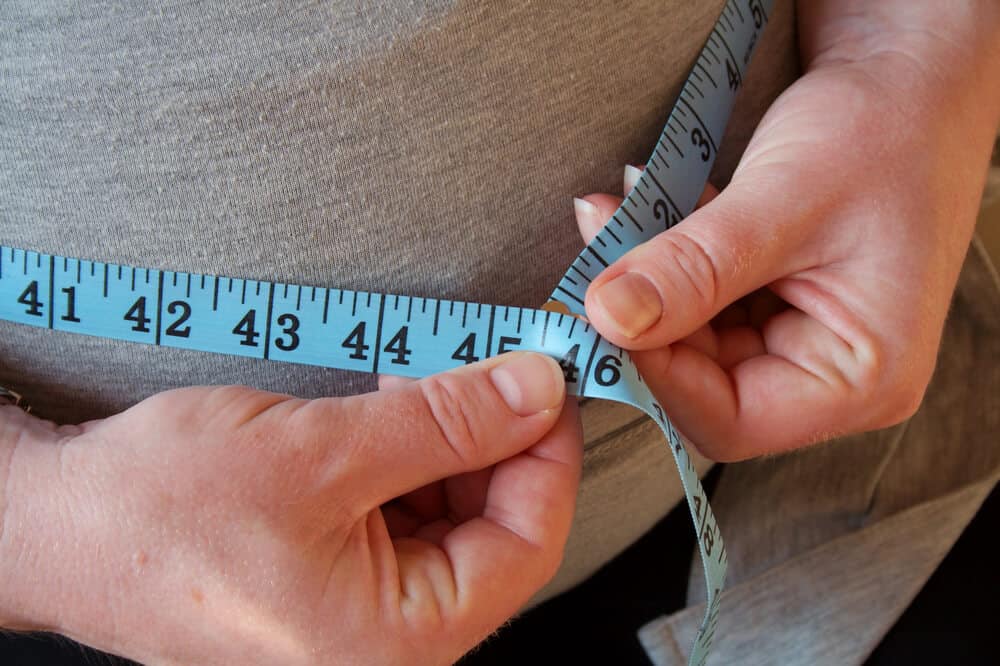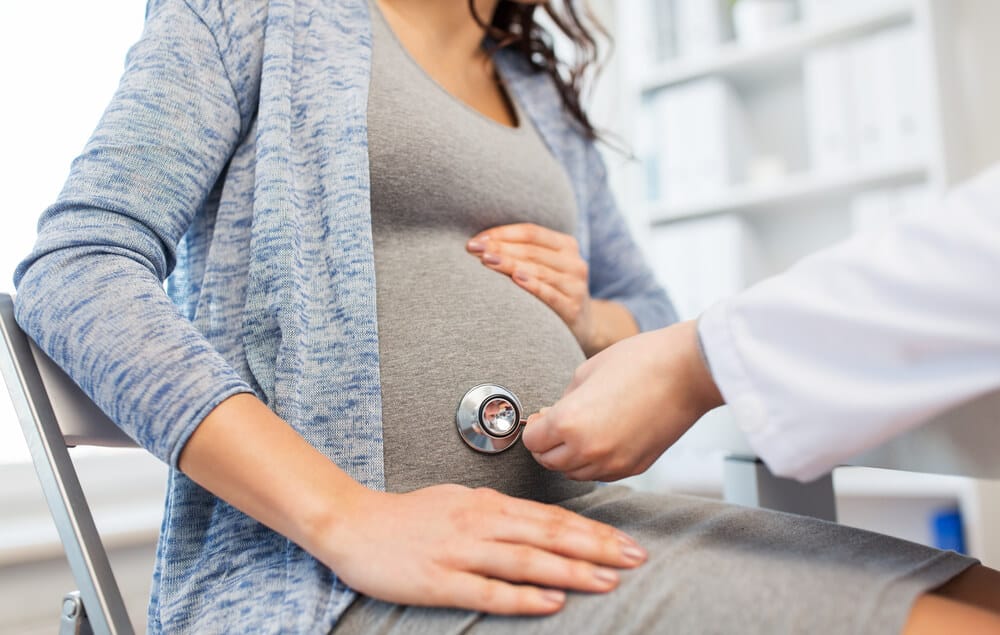
How Dangerous is Anorexia While Pregnant?
According to the American Pregnancy Association, approximately seven million American women suffer from eating disorders each year, with prevalence peaking during childbearing years. Eating disorders like anorexia nervosa can put a halt to menstrual periods and present fertility challenges for couples hoping to conceive — but that doesn’t mean it’s impossible to get pregnant while struggling with an eating disorder.
The prevalence of eating disorders in pregnant women is unknown. However, with so many women suffering from anorexia nervosa, and with 20 percent of cases failing to result in a full recovery, it stands to reason that eating disorders do occur during pregnancy. But just how dangerous is anorexia nervosa to a pregnant woman and her developing baby? Here is how anorexia can negatively impact the course of pregnancy.
Can You Get Pregnant with Anorexia Nervosa?
Many people wrongfully assume that suffering from anorexia nervosa at some point in their life means a woman is infertile. That’s completely false! In fact, women who have recovered from anorexia nervosa and maintained a healthy weight can go on to have a happy and healthy pregnancy. While women with a history of eating disorders should be aware of the triggers of pregnancy (such as weight gain and other changes in the body), there is no reason someone with a history of an eating disorder cannot get pregnant.
The problem arises when women with active eating disorders become pregnant. Women who are underweight and malnourished due to anorexia nervosa may suffer from irregular periods or amenorrhea, the absence of a menstrual period. As a result, they may assume that they are unable to get pregnant and fail to use contraception consistently. This can lead to unplanned pregnancy, which can be especially risky in a woman who is suffering from anorexia nervosa due to the link between being underweight and experiencing pregnancy complications.
The Importance of Weight Gain in Pregnancy
It’s healthy and normal to gain weight during pregnancy. The average pregnant woman requires approximately 250 to 300 calories more per day than someone who is not pregnant. These additional macro- and micronutrients sustain the baby’s growth and provide sustenance for the developing fetus.
Anorexia nervosa may pose an obstacle to appropriate weight gain during pregnancy. Dietitians recommend that women achieve a healthy weight prior to conception, but this may not always be possible in the event of an unplanned pregnancy. Women who are underweight before pregnancy, with a BMI below 18.5, need to gain more weight during pregnancy than women with a normal BMI to support a healthy pregnancy. They should gain 28 to 40 pounds while pregnant, requiring an additional 400 calories per day to support the baby’s development.
Weight gain during pregnancy matters because there is a direct relationship between maternal weight gain and the weight of the fetus. As a result, a woman who is underweight runs a higher risk of delivering an infant who is underweight. This can hinder the chances of the infant’s survival during the initial days postpartum.
Women suffering from anorexia nervosa during pregnancy are 2.3 times more likely to give birth to a low birth weight infant and 1.5 times more likely to have a fetal death. This is due directly to the fact that most women with anorexia are underweight at conception. Research studies have found that women with previous anorexia nervosa who had normal birth weights at conception were no more likely to deliver a low birth weight infant or suffer a fetal death than the average woman.
Complications of Anorexia Nervosa During Pregnancy
Low birth weights are not the only complication that can arise from anorexia nervosa during pregnancy. Anorexia nervosa also poses other risks to the mother and the infant.
Anorexia nervosa has the highest death rate of any mental illness, with about 5 percent of cases resulting in mortality. This risk is elevated during pregnancy, especially if the mother suffers from symptoms like hypothermia (low body temperature), bradycardia (slow heart rate), hypotension (low blood pressure) or edema (fluid retention).
Women with active anorexia nervosa during pregnancy are at greater risk of delivering via Cesarean section (rather than vaginal delivery). C-section places women at risk of developing an infection of the endometrial lining, postpartum hemorrhage, deep vein thrombosis and placenta previa (during future pregnancies). Many times, women who deliver once via C-section deliver any future pregnancies via C-section, too, to reduce the risk of uterine rupture.
C-sections are relatively safe procedures but rarely, they may affect the baby. Babies delivered via C-section are at greater risk of premature delivery due to an incorrect gestational age and certain breathing problems. They are 50 percent more likely to have lower Apgar scores, which measure the health of the infant after birth. Babies may also be accidentally nicked with surgical instruments during delivery via C-section, though this occurs only 1 to 2 percent of the time and heals relatively fast.
Low body weight during pregnancy, owing to anorexia nervosa, may also result in a condition known as intrauterine growth restriction (IUGR). IUGR occurs when the baby does not have enough room to grow, resulting in preterm labor and delivery. Babies born in this manner have lower birth weights and may be less likely to survive.
Anorexia nervosa during pregnancy can result in additional postnatal complications. The woman’s anorexia typically worsens as her pregnancy progresses, followed by rapid deterioration in her condition after delivery. If her pregnancy was also complicated by a low birth weight infant, she may be more likely to suffer from cardiovascular disease, obstructive lung disease and other problems later in life.
Body Image, Pregnancy and Anorexia Nervosa
Even if you have been in recovery for years, pregnancy can bring up uncomfortable feelings associated with anorexia nervosa. You may find yourself at odds with your body and the lack of control you experience over its growth as your pregnancy progresses. Alternatively, you may find that your pregnancy is positive in that it offers you permission to gain weight — and see that nothing catastrophic will happen if you do.
The National Eating Disorders Association (NEDA) warns against certain aspects of pregnancy that can trigger long-dormant eating disorder thoughts and behaviors. Doctors will likely spend much of your pregnancy counting how many calories you’ve consumed and measuring how much weight you’ve gained, which can lead to discomfort and shame.
Mood swings during pregnancy can also bring up uncomfortable memories and emotions related to your eating disorder that you may have previously thought were gone for good. After pregnancy, stretch marks and loose skin, as well as incessant pressure to lose the “baby weight,” can continue to wreak havoc on your mental health, making the prenatal and postnatal periods a challenging time for those of us who have suffered from an eating disorder.

What to Do if You Are Pregnant and Suffering from Anorexia Nervosa
If you find yourself pregnant and suffering from eating disorder behaviors, it’s important to be open and honest with your healthcare providers about your struggles. Your prenatal healthcare provider may want to track your weight gain and your baby’s growth more closely to ensure your pregnancy develops along a healthy track.
You may need to schedule extra appointments with your healthcare provider or with a dietitian or nutritionist who can help you ensure you’re getting the nutrition you need to sustain your baby’s growth.
Counseling and support groups can also help you adjust to the changes of pregnancy and prepare for this new stage in your life, while managing any concerns you have about your eating disorder.
Our trained mental healthcare providers here at The Meadowglade will be happy to emotionally support you throughout your pregnancy to ensure the best possible future for yourself and your baby.
